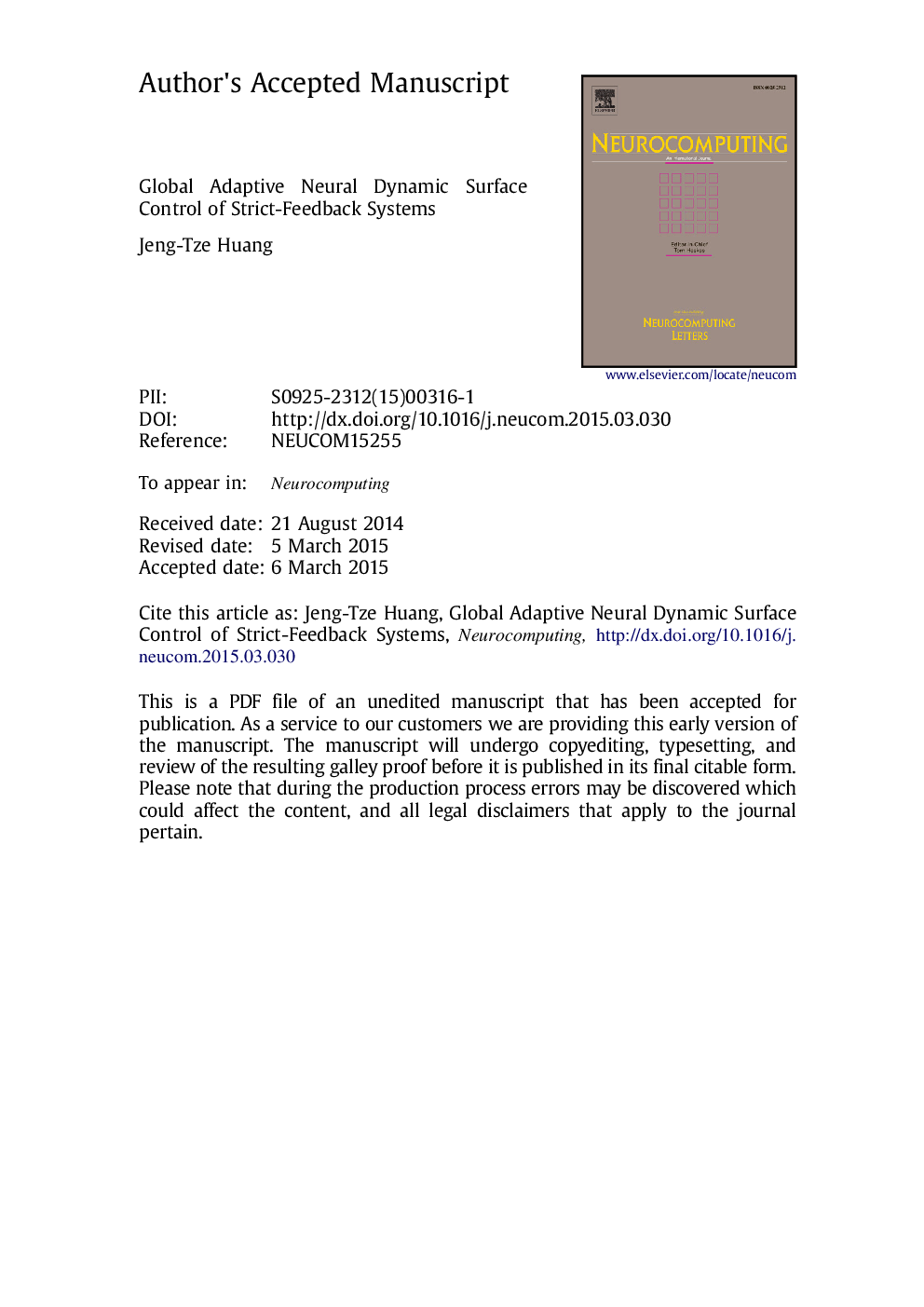| Article ID | Journal | Published Year | Pages | File Type |
|---|---|---|---|---|
| 6865763 | Neurocomputing | 2015 | 45 Pages |
Abstract
By mainly activating an auxiliary robust control component for pulling back the transient escaped from the neural active region, the author has proposed a multi-switching robust neuroadaptive controller to achieve globally uniformly ultimately bounded (GUUB) tracking stability of strict-feedback systems recently. However, the so-called explosion of complexity problem, arising from the repeated differentiations of the virtual controllers in the backstepping procedure, has not been solved yet. The objective of this paper is to tackle this issue via using the dynamic surface control (DSC) technique. By a suitable modification to the DSC scheme, the complexity in the neuroadaptive control component can be successfully conquered. The modification is two-fold, firstly, high-order instead of the common first-order filters are used, secondly, the filters׳ inputs are space-modulated and proven to be bounded, which in turn ensures the bounded stability of the filter dynamics. However, the repeated differentiations in the auxiliary robust controller remain as the price of preserving the global stability. Nevertheless, since the neuroadaptive controller dominates most of the time, the overall controller still significantly improves the existing global designs in terms of computation and implementation. Simulation results are provided to demonstrate the validity of the proposed scheme.
Related Topics
Physical Sciences and Engineering
Computer Science
Artificial Intelligence
Authors
Jeng-Tze Huang,
